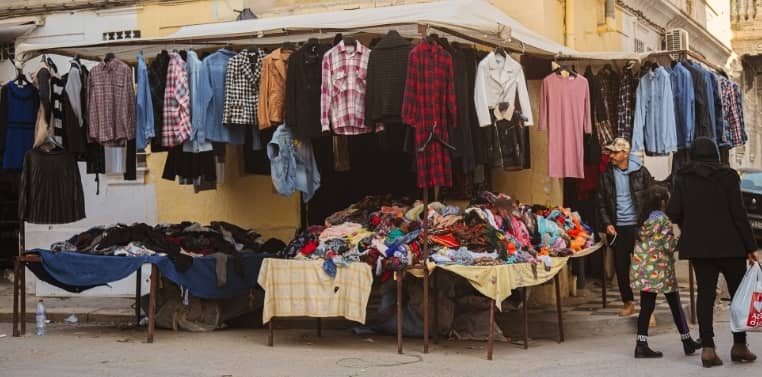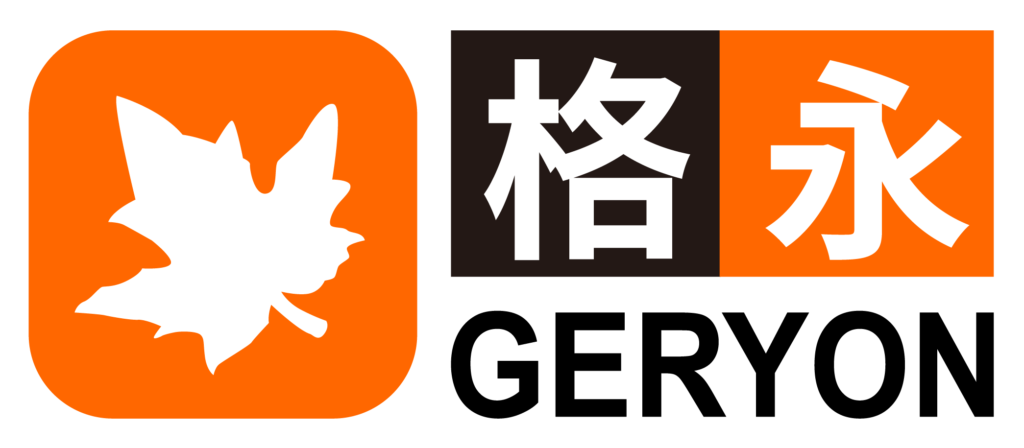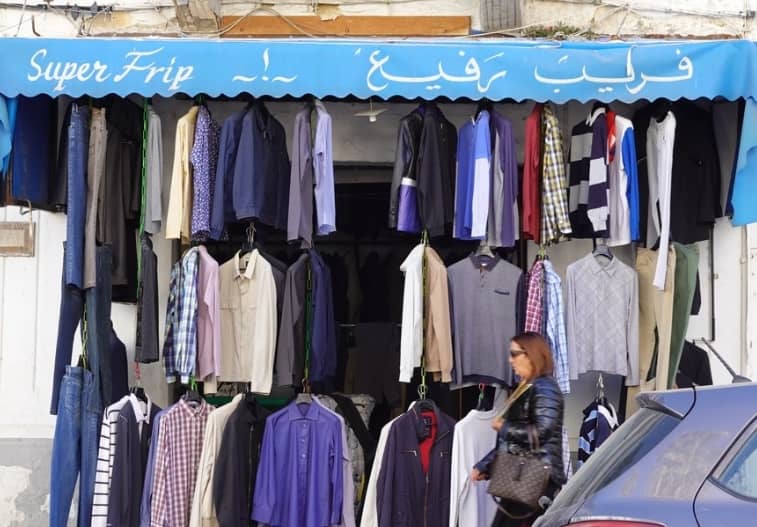For importers seeking reliable sources of Tunisia used clothes, 2024 offers an exciting opportunity to capitalize on the country’s growing second-hand clothing market. The wholesale supply chain in Tunisia has become increasingly efficient, ensuring businesses can secure a consistent supply of high-quality used apparel. In this article, we’ll examine the most effective supply chain solutions for importing Tunisia used clothes and how they can benefit your business.

Table of Contents
1. Introduction: The Growing Demand for Tunisia Used Clothes in 2024
In 2024, Tunisia used clothes continue to attract the attention of international importers looking for high-quality, cost-effective solutions for their retail businesses. Tunisia’s established second-hand clothing industry offers a wide variety of options, making it a key supplier for wholesalers worldwide. The growth of the global second-hand clothing market, coupled with the increasing demand for sustainable fashion, positions Tunisia as an ideal source for used clothes in bulk. As we delve deeper into the supply chain solutions available, this article will explore the various opportunities and challenges for importers in the Tunisian market.
Overview of Tunisia’s Used Clothing Market
Tunisia has long been a significant player in the second-hand clothing industry, exporting to countries across Europe, Africa, and beyond. The country’s well-developed infrastructure, strategic location, and competitive pricing have made it an attractive destination for importers seeking to source used clothes in bulk. The market is characterized by a broad selection of products, including high-quality clothing, shoes, and accessories that appeal to both budget-conscious consumers and businesses looking to diversify their offerings.
Key Factors Driving the Demand for Used Clothes
Several factors are fueling the demand for Tunisia used clothes. First, the growing trend of sustainable fashion is driving consumers and retailers to seek out second-hand options. Tunisia has become a key exporter in this space due to its ability to supply affordable, quality used clothes in large quantities. Additionally, the economic conditions in many regions, especially in Sub-Saharan Africa and the Middle East, have led to an increased demand for budget-friendly apparel, further boosting the export of Tunisia used clothes.
2. Understanding the Tunisia Used Clothes Supply Chain
The supply chain for Tunisia used clothes is an essential aspect for importers to understand in order to successfully source high-quality products. Tunisia’s used clothing industry operates through a network of sorting facilities, wholesalers, and distributors, ensuring a streamlined process from collection to export. To help navigate this complex supply chain, importers must identify key suppliers, understand local logistics, and ensure they comply with both domestic and international regulations.

Key Players in the Tunisia Used Clothes Industry
Tunisia’s used clothing industry is made up of several key players, including sorting companies, wholesalers, and exporters. These entities play a vital role in ensuring the quality and quantity of used clothes available for export. Many suppliers in Tunisia specialize in bulk sales of used clothes, providing importers with a variety of options. These suppliers are often located in major cities like Tunis and Sfax, where the logistics for collecting, sorting, and shipping used clothing are highly efficient.
The Process of Sourcing Used Clothes in Tunisia
Sourcing Tunisia used clothes involves several stages, beginning with the collection of donated clothes, followed by sorting and grading based on quality. After sorting, the clothes are categorized into various grades, from high-quality apparel suitable for resale in retail markets to lower-grade items intended for recycling or repurposing. Importers can choose their preferred grade and negotiate prices based on the quality and quantity required. This process is crucial in ensuring that only the best products are selected for export.
3. Wholesale Supply Chain Solutions for Importers
For importers, the key to success in sourcing Tunisia used clothes lies in understanding the wholesale supply chain solutions available. Tunisia offers a range of logistical and operational advantages, including low shipping costs, favorable trade agreements, and a growing network of reliable suppliers. Importers can benefit from understanding the various supply chain options available, allowing them to select the most cost-effective and efficient route for getting Tunisia used clothes into their markets.
Efficient Sourcing Strategies
An efficient sourcing strategy involves selecting the right suppliers and negotiating favorable terms. In Tunisia, this often means working with well-established sorting companies that offer a variety of used clothes categories, ensuring that importers can find products suited to their market needs. By establishing long-term relationships with suppliers, importers can ensure a steady flow of products, helping them maintain stock levels and manage inventory efficiently.
Importing Tunisia Used Clothes: A Step-by-Step Guide
Importing Tunisia used clothes follows a relatively straightforward process, starting with identifying reliable suppliers. Once a supplier is selected, importers will typically negotiate pricing, payment terms, and shipping logistics. The next step involves arranging for the shipment, which may include customs clearance and other regulatory requirements. Finally, the clothes are delivered to the importer’s destination, where they are distributed to retailers or end consumers.
Logistics and Shipping Considerations
Logistics play a crucial role in the successful import of Tunisia used clothes. Tunisia’s location on the Mediterranean Sea makes it an ideal hub for shipping to Europe, Africa, and the Middle East. Shipping routes are well-established, and importers can choose from various methods, including container shipping and air freight, depending on the urgency and cost requirements. Importers must also be aware of the potential customs fees and regulations that apply when importing goods from Tunisia.
4. Quality Control and Product Selection
When importing Tunisia used clothes, quality control is a key factor that can significantly impact the success of a business. The quality of second-hand clothing varies greatly depending on the sorting process, the source of the items, and the specific grading standards applied. Importers need to establish clear criteria for selecting products that meet their market needs while ensuring they comply with local regulations and consumer expectations.
How to Ensure High-Quality Used Clothes
Ensuring high-quality Tunisia used clothes begins with working with reliable suppliers who have a proven track record in sorting and grading. The best suppliers carefully inspect and grade clothes based on wear, fabric condition, and brand reputation. Importers should also inspect sample shipments before committing to larger orders, ensuring that the quality of the clothes aligns with their expectations.
Best Categories of Tunisia Used Clothes for Wholesale
Tunisia’s used clothing market offers a wide range of categories, from high-end brand-name apparel to casual wear and accessories. Importers often focus on specific categories based on their target market. For example, some may prioritize premium-grade clothes for resale in upscale retail stores, while others might focus on affordable bulk items for developing markets. By selecting the right categories, importers can better meet the demands of their customer base.
5. Legal and Regulatory Considerations for Importers
Importers of Tunisia used clothes must be familiar with both local and international legal and regulatory requirements to ensure compliance throughout the supply chain. This includes understanding import/export regulations, customs duties, and documentation requirements. Failure to comply with these rules can lead to delays, fines, or even the rejection of goods at the border.

Import Regulations in Tunisia
Tunisia has a well-established framework for regulating the import and export of used clothes, and importers must adhere to these regulations. The government sets guidelines for the quality of used clothes that can be exported, and certain types of clothing may require special permits or certifications. Importers should familiarize themselves with these regulations before starting their business in order to avoid any legal complications.
Export Documentation and Compliance Requirements
When importing Tunisia used clothes, the proper export documentation is essential. This may include a commercial invoice, packing list, certificate of origin, and other documents required by the customs authorities in the importing country. Ensuring that these documents are in order can help prevent delays and facilitate smooth customs clearance.
6. Trends in the Tunisia Used Clothes Market for 2024
The used clothing market in Tunisia is expected to experience continued growth in 2024, with new trends shaping the demand for second-hand apparel. Understanding these trends is vital for importers looking to stay competitive and meet consumer expectations. Whether it’s the increasing preference for sustainable fashion or the rise of e-commerce platforms selling second-hand goods, staying ahead of market changes can give importers a significant advantage.
Emerging Trends in Second-Hand Apparel
In recent years, there has been a global shift towards sustainable and eco-friendly fashion, and Tunisia is no exception. More consumers are turning to second-hand clothes as a way to reduce waste and promote sustainability. As this trend grows, Tunisia’s export of used clothes is expected to increase, with higher demand for items in better condition and more fashionable styles. Importers can capitalize on this trend by focusing on higher-quality, in-demand items.
Consumer Preferences and Market Shifts
Consumer preferences in the Tunisia used clothes market are evolving, with a growing appetite for branded and premium-grade second-hand items. Importers should keep an eye on these shifts, as it can help them target the right products for their local markets. For example, certain regions may have a higher demand for fashion-forward, lightly used clothes, while others may prefer bulkier, budget-friendly options.
7. How to Build a Successful Wholesale Partnership with Tunisia Suppliers
Building strong, long-term relationships with Tunisia used clothes suppliers is essential for ensuring a consistent supply of quality products. Successful partnerships are based on clear communication, mutual trust, and a shared understanding of market demands. Importers who prioritize these aspects will likely see continued success in sourcing Tunisia used clothes.
Choosing the Right Supplier
Selecting the right supplier in Tunisia is crucial to ensure that your business runs smoothly. Importers should look for suppliers who have experience in exporting used clothes and can provide consistent, high-quality products. It’s also important to consider their reliability in terms of shipping times, communication, and pricing.
Negotiating and Establishing Long-Term Relationships
Negotiating favorable terms with Tunisia used clothes suppliers can be the difference between a profitable and unprofitable venture. Importers should establish long-term relationships with their suppliers to ensure a stable supply of goods. This involves clear agreements on pricing, delivery schedules, and payment terms, fostering trust and collaboration.






